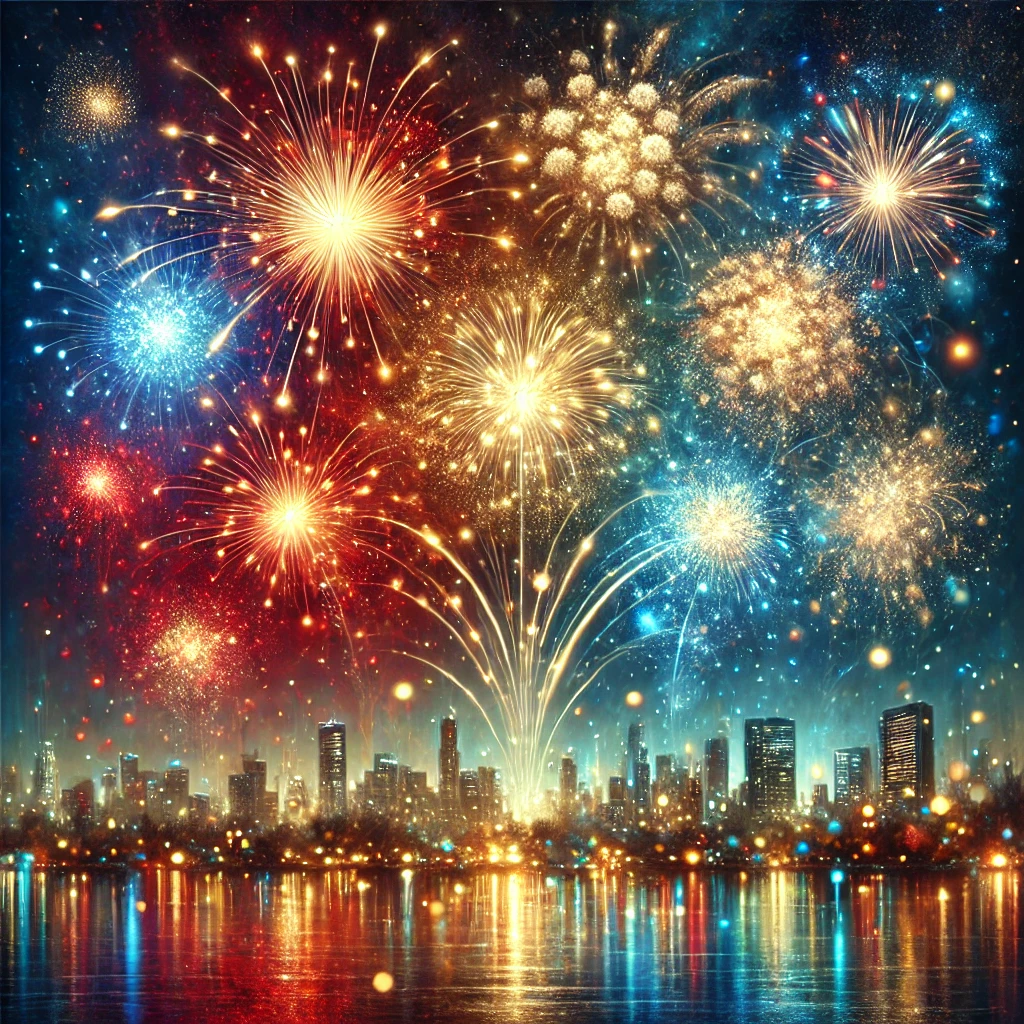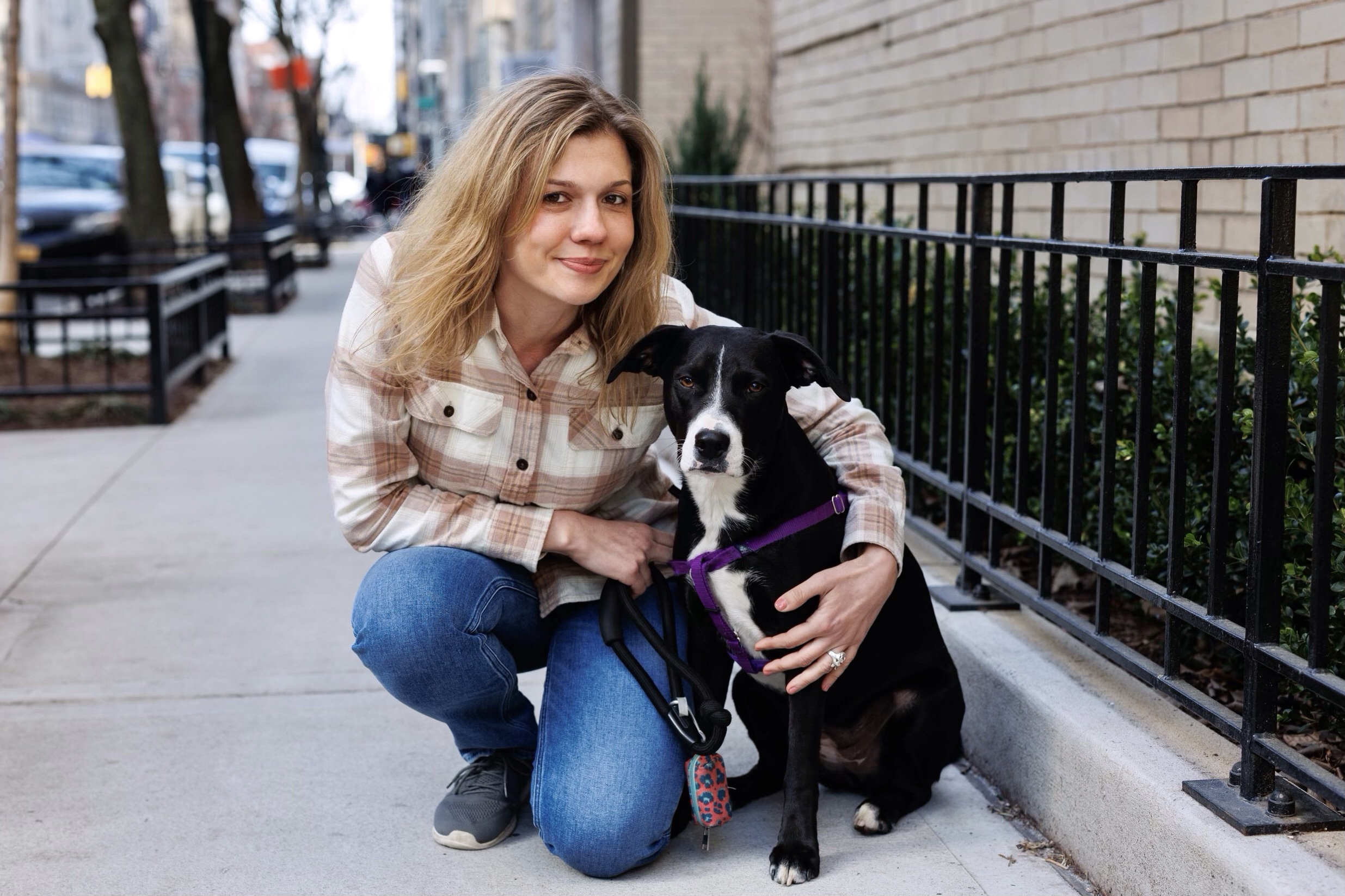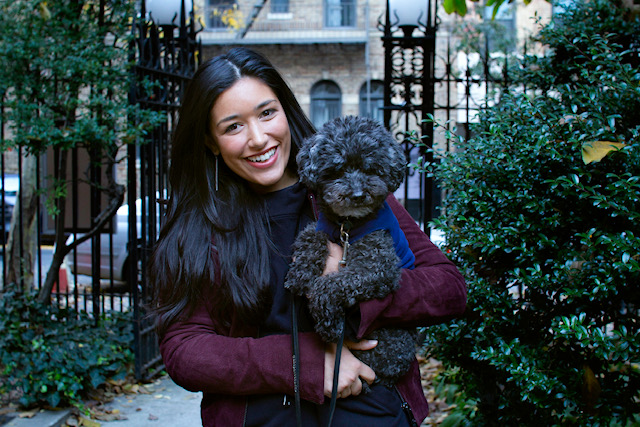
How to Keep Your Dog Calm During NYC Fireworks and Loud Noises
Who doesn’t enjoy the festivities of the 4th of July weekend? The parades, picnics, and barbecues shared with friends and family topped off so magnificently with an epic firework display? Your dog, that’s who! For most dogs, fireworks are unnerving at best, to down right terrifying at worst. The unexpected nature, along with the intensely loud sound and vibrations caused by these explosions are very frightening to dogs. Dogs certainly have no appreciation for the loud colorful displays that seem to thrill people.
NYC is well know for its incredible firework display held every 4th of July over one of Manhattans surrounding rivers. People come from far and wide to be part of the NYC Independence Day celebration, but it can be seen and heard from parts of every city borough as well as NJ. What is an anticipated fun event for people, is a really bad few hours for the many dogs living in the area, especially for dogs that may already be predisposed to suffer with noise relaxed anxiety such as thunderstorm phobia. To make the situation even more difficult for dogs is the numerous illegal fireworks that are frequently set off before, on, and after the holiday. These unscheduled firework explosions can happen any time, and any place, catching you and your dog off guard during a walk. This results in your dog being frightened and feeling unsafe in an unprotected environment. This can be stressful, and anxiety inducing for dog and human alike, putting you both in a dangerous situation. It is wise to protect your dog to the best of your ability to being over exposed to extremely loud, scary noises such as fireworks, and thunderstorms. Unlike other urban noises that we want our city dogs to get desensitized to and comfortable around with positive exposure, a dogs reaction when exposure to fireworks and the like seems to get worse over time, not better. So let’s keep are dogs safe and calm during holidays like 4th of July and New Years Day to prevent our dogs from developing noise phobias.
Tips For Keeping Dogs Safe During Fireworks
- Keep your dog inside during scheduled fireworks.
- Avoid being outdoors any distance from your home during evening hours a couple days before and after a scheduled fireworks display in case your neighbors are setting off fireworks of their own.
- Keep your exterior doors and windows closed and locked to prevent your dog from getting out and lost in their attempt to flee to safety. Remember that your dog does not understand what is going on or how to get away from it, so they may act in a way that does not make sense to you. Frightened animals do not always make the best choices.
- Make sure your dog is wearing their collar with ID tag throughout the holiday weekend. Accidents happen so you want to safe guard your pet from being lost. It is also advisable to check that your dogs ID tag and microchip has your up to date contact information attached. You may also want to consider adding a GPS type tracking device to the dogs collar or harness.
- Should your dog become lost, you will want to have an up to date photo that clearly identifies them ready to distribute on a lost dog poster. As unlikely as loosing your dog may seem to you, vet clinics, shelters, and animal control agencies report a significant increase in lost pets during holidays associated with loud noises such as Independence Day and New Years.

Tips For Keeping Dogs Calm During Fireworks
- Create a protected environment for your dog to wait out the fireworks. A small familiar room, such as the bedroom were they sleep, or a crate if they are crate trained is ideal. Close and cover the windows to shield your dog from external scary noises and light. Create ambient sound that will further drown out the booming cracking sounds of fireworks. Some good choices are an AC unit, a TV, music, or a sound machine.
- If your dog is not crate trained, make sure the room your dog is in, is set up with safety in mind. An upset dog may start pacing, digging, or chewing.
- There are many clients that report that their dogs take comfort in wearing a calming shirt or anxiety wrap style vest. These vests are designed to apply and maintain constant pressure and acupressure that reportedly reduces problematic behavior associated with stress and anxiety. You can get your dog comfortable wearing this type of product prior to the actual fireworks event to see if it is a good choice for your pooch.
- Consider celebrating the holiday at home with your dog, hunkered down in the safe place you created for the duration of the fireworks celebration. Being present will enable you to make any needed modifications to the environment, and allow you to provide support to your dog if they need it.
- If your dog is scared avoid coddling them. Instead try to set the tone in a more nonchalant way. You can let your dog stay close resting beside you, or you can try to engage them in food puzzle toys or other play.
- To help set you and your dog up for success be sure to get your dog out for a good exercise walk, hike, or romp with friends to get them mentally and physically tired out. Ideally, a tired dog will sleep through the fireworks in the safe place you have arranged for them.
- Aromatherapy can having a calming affect on dogs and people alike. For dogs, try rubbing lavender oil on the tips of their ear flaps. It will do no harm so its worth a try.
- Dog appeasing pheromone products are also worth a try. They can work especially well in a small space. This product comes as a scent producing product in the form of a plug-in, spray, or collar. It replicates a pheromone produced by nursing dog moms that can have a calming effect. The scent is not detectable to humans.
- There are many natural medicinal remedies that have mild calming, sedative type properties like tryptophan, L-theanine, and CBD. When considering using these types of calming chew treats, be sure to consult with your veterinarian for their approval and recommendations. Your veterinarian will most likely also recommend that you give your dog the agreed upon supplement prior to a noise related, fear inducing event so as to test the effectiveness and dosage best for your dog.
If your dog struggles through a fireworks event even with all the suggested precautions being taken, you will know you need to make additional precautions for the next year. For dogs that are extremely sound sensitive or phobic, more extensive calming measures may be called for. You could consult with a professional dog trainer to design a systematic plan to get your dog more comfortable around loud noises in general. It is important however to be realistic when it comes to dogs, fireworks, and thunderstorms. These are extreme events that some dogs are too overwhelmed by. You may find that getting out of town to a quieter place is a better way to enjoy the long weekend with your dog. Sharing your concerns with your veterinarian is important so they can consider and inform you about prescription drug therapy or sedative options that could help relieve your dogs fear and anxiety.
Signs That Your Dog May Need Help With Sound Sensitivity or Phobia:
- Destructive Chewing
- Scratching at doorways
- Signs of trying to dig out
- Loss of bladder or bowel control
- Loss of appetite
- Excessive clinginess
- Panting
- Drooling
- Trembling
- Pacing
- Hiding
- Lack of responsiveness to well established training
- Anal gland expression
- Attempts to escape out of doors
- In extreme cases dogs jumping through windows has occurred
Dogs and Holidays
Fortunately, most dogs, when provided with a calm, safe environment, will be able to manage the holiday fireworks without experiencing and expressing the fear related behavior seen in more extreme cases. It is however critical, that we protect our dogs from these fear inducing events to avoid a more severe reaction in the future.
Holidays that include loud parades and fireworks are especially challenging, but other holidays and events can also put our dogs in emotional harms way. Many dogs are overwhelmed by rowdy groups of sports fans cheering, the additional company, noise, and activities that surround holiday dinners and parties, even just the change in schedule or location when traveling. The best words of wisdom we can give is to consider your dog and be be considerate to your dog. It is wonderful to include or canine family members in our holiday celebrations but only if we have raised them and prepared them to feel comfortable in these situations. Either prepare them or do not include them. For some dogs, it is kinder to let them relax with a chew toy in a quiet place (a room or crate) alone and away from a hectic environment than subject them to a stressful environment. In the case of fireworks, I am sure your dog would love to have you hang out with them in that comfortable, quiet place for the night. It’s the perfect type of holiday to just spend together.
Educate your dog with Andrea Arden and her team.
New York | Los Angeles | Connecticut
Share
- Group Classes
- Private Lessons
- Virtual Training
- Puppy Play Groups
- Puppy Training
- Articles & Advice


